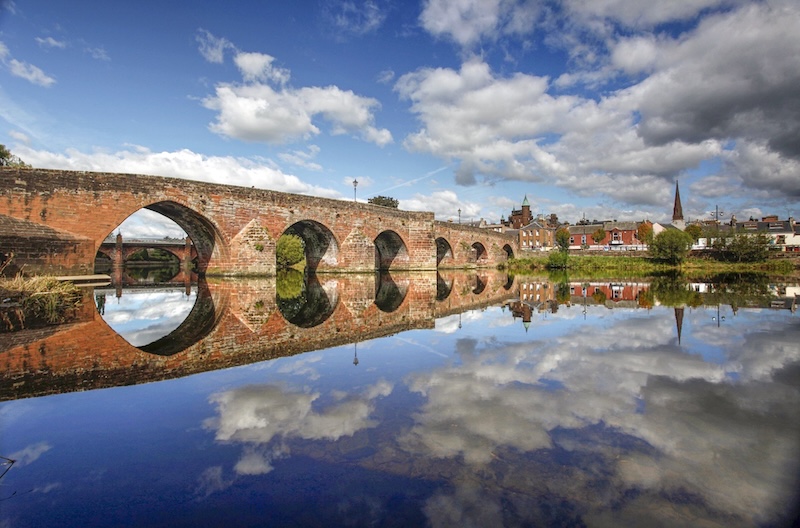
Origins are like opinions: we all have at least one. My origin, at least on my paternal side, is in Scotland, in Dumfries, to be exact, a city also known as “The Queen of the South.” In the Scots dialect, my ancestral roots make me a “Doonhamer,” someone from “down home” in the Borders on the banks of the River Nith. It was my seven-times-great grandfather who emigrated from Dumfries to America in the middle of the 18th Century, and, in 1763, it is well documented that he became the last white settler to be attacked by Indians in Western Pennsylvania. Thankfully, he survived or I wouldn’t be writing this now.
On my mother’s side, I have fewer details, but I know this much: mother’s ancestors were Dutch settlers who arrived on this side of the Atlantic a few decades even before my paternal forbearers. (Mother never let father forget that.) They settled in Manhattan before moving a few miles up the Hudson River Valley to Tarrytown. It took a couple hundred years, but eventually, father met mother on a blind date in Boston, and, yada, yada, yada, one thing led to another, and I originated in Pittsburgh. That was now more than three-quarters of a century ago. Sigh…
Is this going somewhere? My point is that unless your ancestors were indigenous to this continent, we all come from afar. Some of our ancestors wanted a better life, or sought relief from persecution of some sort, or maybe just had a dream, an American one. But there are also those of us who had no choice in the matter: their ancestors were forced to come here, captured and sold to the highest bidder. Whatever it was that impelled or coerced our individual originators to leave kith and kin and cross an ocean to start anew on theses shores both blesses and haunts us to this day. In our time, immigrants are still arriving; the only difference is that instead of an ocean to cross, now there is a long, difficult trek that ends at a border with a fence painted black. There is no welcome sign.
Immigration is not an easy issue. We’ve been dealing with its tangled tendrils ever since the first white explorers and settlers set foot on this continent more than five hundred years ago. There were people already living here, and despite the vastness of this land, there was both competition for its resources and a different cultural vision of land ownership. It’s hard to get along with your neighbor when resources are finite and cultures see things differently. Just ask the Israelis and the Palestinians; they have been reading this sad story for literally thousands of years.
We are up against all sorts of knotty problems these days, and, sadly, there are no easy solutions. But I know this much: violence is not the answer, nor is cruelty, nor is authoritarianism. We have to find a way to live together; otherwise, the dream will become a nightmare and when that happens, we’re all doomed.
I’m proud to be a Doonhamer; I celebrate my Scottish roots in all sorts of ways. But, even with all that’s going on today, I’m prouder to be an American. We can get through this. We can sort this all out. All it takes is adherence to one simple rule: love thy neighbor as thyself.
I’ll be right back.
Jamie Kirkpatrick is a writer and photographer who lives on both sides of the Chesapeake Bay. His editorials and reviews have appeared in the Washington Post, the Baltimore Sun, the Philadelphia Inquirer, the Pittsburgh Post-Gazette, the Washington College Alumni Magazine, and American Cowboy Magazine. His most recent novel, “The Tales of Bismuth; Dispatches from Palestine, 1945-1948” explores the origins of the Arab-Israeli conflict. It is available on Amazon and in local bookstores. His newest novel, “The People Game,” hits the market in February, 2026. His website is musingjamie.net.



Write a Letter to the Editor on this Article
We encourage readers to offer their point of view on this article by submitting the following form. Editing is sometimes necessary and is done at the discretion of the editorial staff.